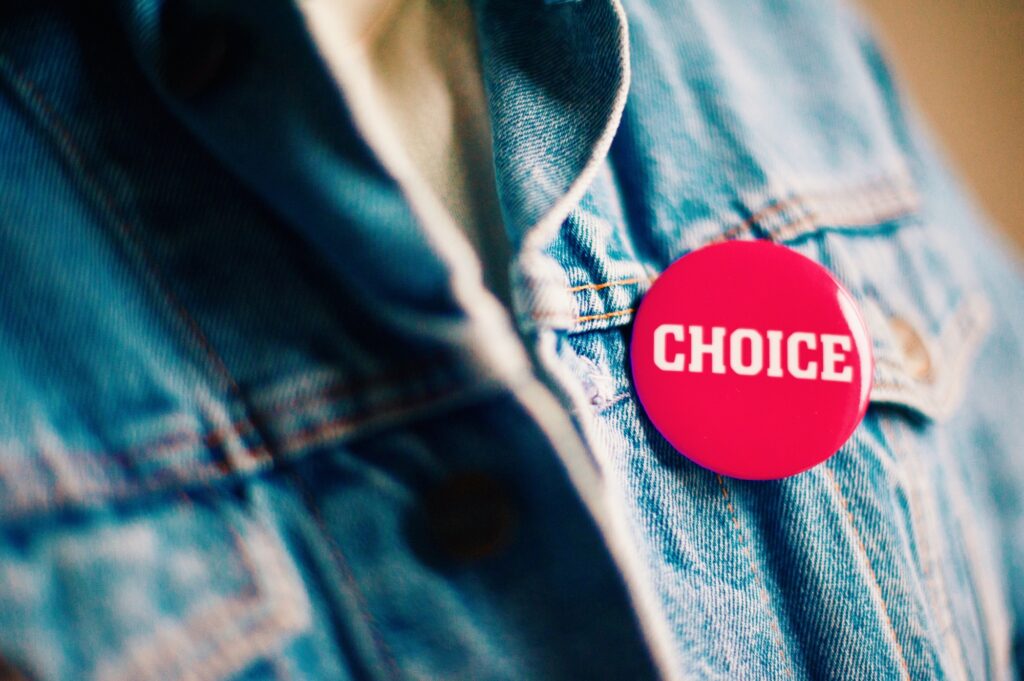A few days ago, Chris sent me a link to Barry Schwartz’s lecture on TED…”Take a look, very provocative” he said. And it was.
The speaker was talking about the negative effects of too many choices on human life. Too many choices increase paralysis and decrease satisfaction. Having too many choices contributes to depression. The answer is setting a personal fishbowl, which is a euphemism for imposing limits on choices and income redistribution.
Mr. Schwartz, let me tell you my part of the story.
I lived a half of my life under a totalitarian regime and the other half in the United States. While you may have heard how people lived there, I actually was in the system for more than 30 years. Choices were limited or none altogether. You went to the grocery store and the shelves were quite often empty. There were no radios a few years after the war because the government didn’t want you to listen to Radio Free Europe. If you somehow got a radio and somebody reported this to the police, you end up in jail. For a car, I waited one year, for an apartment seven years, and you got whatever they gave you. There was no choice. And I was lucky because my Mother had friends, who had access to “sources”. You looked at people on the street, and they were all dressed in the same, uninteresting clothes. The choices were limited.
When my Mother came to this country, she was overwhelmed by, you guessed it, so many items on the shelves in grocery stores. She was shocked, then amazed, but she learned and adapted. Mother never complained, never got depressed. Actually, it was a good feeling because she felt in charge! (You had to know my Mother). My wife had taught her how to shop, and she was looking forward to their weekly trips to a local grocery store. It took her longer, but we will forgive her. She was in her 60s and her English was rudimentary.
Some people like limited choices. There are still people in Russia who want communism to return. Everything was provided for them, and they didn’t have to worry about anything. A few days after Stalin’s death on March 5, 1953 (his death was not immediately announced) I came to school and saw my teacher crying at her desk. “What’s the matter?” I asked. “Our Father has died” was the answer. “How are we going to live without Him?”. Now how is that for a paralysis?
As far as disappointment after the decision was made, well, there will always be people who are disappointed. Be it good, bad or no decision at all. Depression? That I don’t know. Recent studies indicate that medical residents working restricted, shorter hours are not less prone to depression than their counterparts working longer hours. Must be some other reason.
Close to half of my medical school class left the country for the same reason as so many other countrymen. You know why? Because of freedom, which brings about more choices. Some of them went back, but at least they had a chance to try it. It was their decision, and they were not limited by restrictions imposed arbitrarily by some other body, government or otherwise.
For so many people in this country, freedom is just an empty word. I tell them, as well as I tell my children, go ahead and travel. See how the other people are living. Then come to this country and see how good we have it here. If you still like the other systems, then you can move. But then again, you have freedom of choice.
And when you decide to limit the number of salad dressing in a store, what would be a good number? One hundred? Fifty? Forty-nine? Who would decide? Who would enforce? More rules and regulations. The idea is initially intellectually appealing, but doesn’t work. Just like communism.
You touched on the relationship between a doctor and a patient. You said you would rather be told, what to do by your physician. When I was still working in Poland, I was a faculty member in the medical school there. Patients there were told what was going to be done to (for?) them. When they asked, who was going to do surgery, the answer was “the hospital”. And when the diagnosis was cancer, patients were not told. How was that for choice?
In this country, we go the other way. If we do not involve a patient in the decision-making process and something goes wrong, who do you think will be on our back? You will be surprised how many times patients have strong feelings and are educated enough to make a proper decision. Just like in a jury system.
But your idea of income redistribution really got to me. “Everybody has the same size of stomach, therefore everybody’s needs are the same” and “You pretend that you are paying us, so we pretend that we are working”. I could quote more pearls like this, but they are difficult to translate to English. My Father was a high-power attorney working as an advisor for a big Polish corporation. His salary was just the same as a salary of a qualified physical worker. How is that for an incentive to study?
“The inherent vice of capitalism is an unequal share of blessings,
The inherent virtue of socialism is an equal share of misery”.
In the history of my country, we had our own problems with Winston Churchill, but here he was on the money.
Instead of lecturing on how having too many choices is bad for you, much more appropriate would be teaching how to cope with this problem. That is what young people need to function properly in our society.


